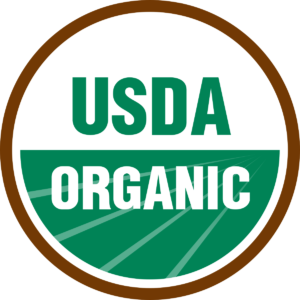 Well, well, well...small American organic farms get crushed again. A hazelnut famer sued on behalf of himself and other organic farmers regarding the fact that organic imported foods don't have to meet all the organic requirements that American grown organic foods have to meet. Things like inspections, bookkeeping, and evidence that the foods grown are actually organic.
Well, well, well...small American organic farms get crushed again. A hazelnut famer sued on behalf of himself and other organic farmers regarding the fact that organic imported foods don't have to meet all the organic requirements that American grown organic foods have to meet. Things like inspections, bookkeeping, and evidence that the foods grown are actually organic.
The judge threw out the lawsuit after the USDA (US Department of Agriculture) challenged it. The federal judge said that American organic farmers were not being economically hurt. Hah! Think about it - do consumers pick the more expensive American grown organic or the cheaper foreign product? Consumers buy the cheaper product. And soon stores start to just carry the cheaper products.
The lack of oversight and not having to meet American organic standards (USDA organic seal) is why so many of the "organic" food imports aren't actually organic, and why they are so cheap compared to American organic foods. Several countries are especially notorious in flooding the American market with fake organic foods, such as China and Turkey.
Bottom line: Imported so-called organic foods don't have to meet federal requirements that American small organic farms have to meet. Buyer beware.
From Organic Eye (an investigative non-profit): USDA Lawyers Successfully Challenge Standing in Lawsuit — Turkish Hazelnut Processor’s Fraudulent Activities ‘Do Not Place US Organic Farmers at a Competitive Disadvantage’
A federal judge has found in favor of arguments made by USDA lawyers and dismissed a lawsuit brought by an Oregon hazelnut grower who claimed he, along with other US organic farmers, was being competitively injured by imports that are allowed into this country from farms that haven’t been certified and inspected as federal law requires.
The judge in the case, Ann Aiken, found that the plaintiff, Bruce Kaser, did not have standing to claim economic injury or adjudicate his allegation that allowing imports that do not meet the same rigorous requirements as those imposed on US farmers harms the value of the USDA organic seal in the marketplace.
The USDA organic seal is trademarked and owned by the American people, and available for use by farmers, food processors, and retailers who adhere to federal standards.
“While US farmers, like Mr. Kaser, spend thousands of dollars per year to have their farms individually certified by a USDA accredited organization, maintain meticulous records that are audited, and undergo inspections on an annual basis — as the law requires — the USDA has issued a ‘license to steal’ to numerous foreign operations that do not meet the same standards,” said Mark Kastel, executive director of OrganicEye, a farm policy research group that acts as an organic industry watchdog.
The USDA has been allowing what is referred to as “group” certification, where certified agribusinesses can take responsibility for supervising their own suppliers rather than the task being done by independent, accredited certifiers.
“This is a grotesque conflict of interest and exactly what Congress was trying to ameliorate when they passed the Organic Foods Production Act in 1990 delegating the task of protecting ethical industry participants and consumers in the marketplace to the United States Department of Agriculture” Kastel added.
Foreign processors and exporters are aggregating crops from tens of thousands of uncertified foreign farmers managing hundreds of thousands of acres. Many of these exports are flowing in from countries in Central Africa, South and Central America, India, China, Turkey, and other countries with endemic levels of commercial fraud, including perpetrating previous significant organic scandals.
Meanwhile, consumers are being misled by a major USDA advertising and public relations campaign erroneously claiming that every farm, including foreign operations, undergoes “rigorous certification,” when only a small percentage of foreign farms are actually inspected or certified for organic compliance.
